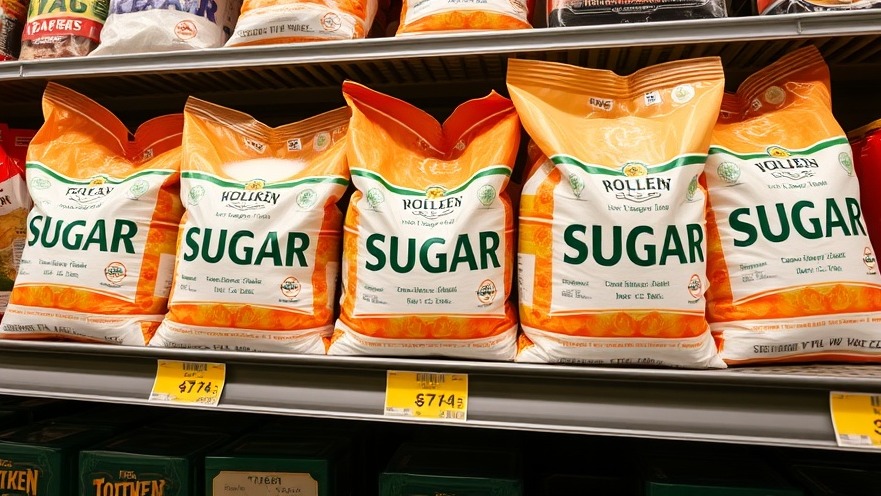
Understanding the Link Between Diet and Joint Pain
It’s no secret that what we eat can have a profound impact on our physical health. For many adults, joint pain can be a debilitating part of life. Recent discussions have spotlighted a surprising culprit: certain foods that may exacerbate inflammation and discomfort. The link between diet and joint pain is not just a fad; it's a crucial consideration for those seeking relief. By understanding these connections, we can make informed choices that may enhance our quality of life.
In 'The #1 Food Fueling Your Joint Pain!', the discussion dives into how our dietary choices impact joint health, exploring key insights that sparked deeper analysis on our end.
Food Choices That Could Be Fueling Your Pain
One food group that often comes under fire is sugar. Refined sugars and processed foods are notorious for increasing inflammation, leading to greater joint discomfort. Sugary snacks, soft drinks, and processed meals can create a cycle of pain and inflammation. For seniors, who may already be dealing with age-related inflammation, reducing sugar intake could be a significant step toward alleviating pain.
Moreover, trans fats found in many fried and fast foods also contribute to inflammation. As such, opting for natural, whole foods like fruits, vegetables, whole grains, and lean proteins may prove beneficial. These foods provide not only essential nutrients but also aid in reducing inflammation and promoting joint health.
The Importance of Mental Wellness for Seniors
When grappling with chronic pain, including joint pain, many adults may experience a decline in mental health. Understanding the emotional toll of pain is vital. Anxiety, depression, and feelings of loneliness can amplify the sensation of pain, creating a feedback loop that is difficult to escape.
Mental wellness activities like journaling for mental clarity and meditation for better sleep can bolster emotional resilience. Gentle practices like tai chi and yoga can also enhance mental wellness while promoting physical movement. Creating a structured bedtime routine, enriched with calming activities before sleep, may support better rest and, in turn, better pain management.
Building a Supportive Environment
Creating a supportive environment is crucial for improving both mental wellness and managing joint pain. From ensuring adequate hydration to prioritizing a calming bedroom atmosphere, these elements play an essential role in overall health.
To reduce nighttime anxiety and promote quality sleep, seniors can benefit from expert tips on improving their sleep hygiene. For instance, soothing herbal teas, such as chamomile and lavender, promote relaxation. Incorporating essential oils into relaxation techniques before bed may also calm the mind and lead to deeper sleep, further supporting physical health.
How Lifestyle Changes Can Make a Difference
Making specific lifestyle changes can have a lasting impact. Engaging in light to moderate exercise regularly can alleviate joint stiffness and contribute to mental wellness. Regular walking in a natural setting not only benefits physical health but shows remarkable mental health benefits, helping seniors to stay active and socially connected.
Moreover, actively monitoring one’s nutrition and supplementing a balanced diet with omega-3s for brain and mood support can pave the way for improved overall wellness. Prioritizing a consistent sleep schedule aids in managing sleep disorders in older adults and improving cognitive health.
The Collective Benefits of Mindfulness
Mindfulness exercises, such as deep breathing and progressive muscle relaxation, empower seniors to manage stress naturally. These techniques not only support relaxation but improve mental clarity and can assist in combating symptoms of stress and anxiety. When coupled with social connection efforts, mindfulness practices can foster community bonds, further enhancing emotional well-being.
If you or someone you know is experiencing joint pain, remember that diet and mental wellness go hand in hand. By prioritizing both physical and emotional health, it’s possible to pave the way for an enhanced quality of life. Integrating these strategies into daily routines can promote a stronger, more resilient you. Take the first step toward relieving joint pain today by exploring how making small changes in your diet and mental health strategies can transform your overall well-being.
 Add Element
Add Element  Add Row
Add Row 



Write A Comment